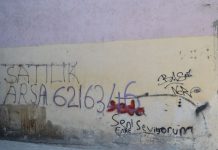Inheritance Negotiations
The aged Sultan wanted to negotiate with his son Selim by appointing him successor among other princes on condition that Selim did not interfere with the throne and treasury as long as his father was living.
Janissaries’ Salary Increase
Sultan Yavuz Selim (1512-1520) raised the “cuius” tips of janissaries who helped him ascend the throne from 2000 kuruş to 3000 kuruş. This meant approximately 50 Venetian ducats of gold. It was a big and challenging sum for the State Treasury. Sources state that Yavuz, in the beginning, spent this treasury, which he had taken over from his father Beyazit or rather from his grandfather Mehmet the Conqueror, far too generously. In the archives of Topkapi Palace, the fact that the Treasury book reflecting Bayazit II’s period consists of only three pages is proof of this matter. Nevertheless, Yavuz had, in a very short time, filled the Treasury crammed full, particularly at the end of his voyages to the orient Tour Guide Turkey.
Diplomatic Relations
Soon after Sultan Yavuz’s accession to the throne, envoys from the west had from the east and started coming to congratulate him. Among them those who came with most gifts were the envoys of Russia and Egypt, and bizarre enough, there was no envoy from Iran. Meanwhile Iran (Persia) had become a powerful state under Shah Ismail’s reign. When Yavuz was serving as Governor in Amasya, he was deeply involved with this powerful state. Annals have written that he entered the Persian Palace secretly in disguise and played chess with Shah Ismail.
Military Campaigns and Diplomatic Maneuvers
Instead of the Ottoman capital, Iran was sending an envoy to Egypt, accompanied with valuable gifts. Her aim was to unite with Egypt and then make a move to the Ottomans. Knowing this, Yavuz first went to war over Egypt, returning with highly valued booties. The greatest success Yavuz Sultan Selim attained from his voyage to Egypt was to devote the title of “Caliph” to Ottoman sovereigns. Until that time the Egyptian Mameluke Sultans had been utilizing this sacred office with its crowns Evolution of State Treasury. Yavuz, upon his return home, had brought along with him symbols of Caliphate-the most supreme title of Islam religion. In sources, these symbols are known to be Islamic Holy Relics, belonging to the Prophet Muhammad and the four Caliphs. The fundamental symbol known as Mantle of the Prophet (Hirka-i Saadet) was owned by our Prophet Muhammad. The poet Kaab Ibn-i Zübeyr, who at first had been against Islam, having resented this later on, came to the presence of the Prophet and read him a poem full of praise-Ode of the Mantle (Kaside-i Burda).








